Brownstone Institute
WHO Accords Warrant Sovereignty Concern
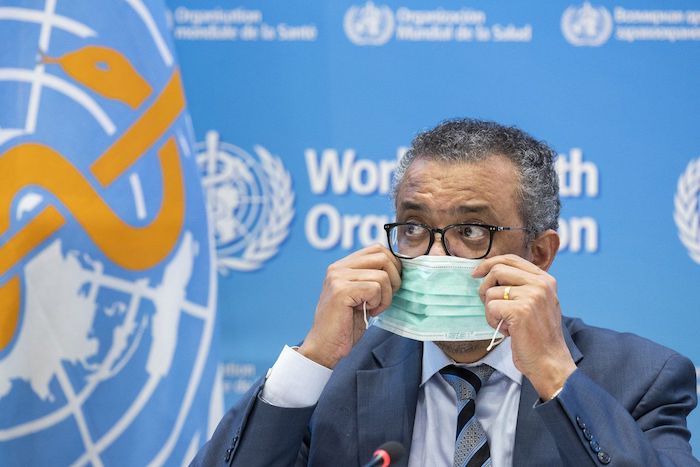
From the Brownstone Institute
BY
In agreeing to undertake to implement the WHO advisories, states will be creating a new system of pandemic management under the WHO authority and binding under international law. It will create an open-ended international law obligation to cooperate with the WHO and to fund it.
On 11 March, my article criticizing what appeared to be a slow-motion coup d’état by the World Health Organization (WHO) to seize health powers from states in the name of preparing for, conducting early warning surveillance of, and responding to “public health emergencies of international [and regional] concern” was published in the Australian. The coup was in the form of a new pandemic treaty and an extensive package of more than 300 amendments to the existing International Health Regulations (IHR) that was signed in 2005 and came into force in 2007, together referred to as the WHO pandemic accords.
The two sets of changes to the architecture of global health governance, I argued, will effectively change the WHO from a technical advisory organisation offering recommendations into a supranational public health authority telling governments what to do.
On 3 May, the Australian published a reply by Dr. Ashley Bloomfield, co-chair of the WHO working group on the IHR amendments. Bloomfield was New Zealand’s Director-General of Health from 2018–22 and received a knighthood for his services in the 2024 New Year’s Honours list. His engagement with the public debate is very welcome.
Rejecting the charge that the WHO is engaged in a power grab over states, Bloomfield wrote that as a one-time senior UN official, I “would know that no single member state is going to concede sovereignty, let alone the entire 194 members.”
I bow to the good doctor’s superior medical knowledge in comparison to my non-existent medical qualifications.
Unfortunately, I cannot say the same with respect to reforms across the UN system, or sovereignty, or the relationship between “We the peoples” (the first three words of the UN Charter), on the one hand, and UN entities as agents in the service of the peoples, on the other. On medical and not health policy issues, I would quickly find myself out of my depth. I respectfully submit that on sovereignty concerns, Dr. Ashley may be the one out of his depth.
On the first point, I was seconded to the UN Secretariat as the senior adviser to Kofi Annan on UN reforms and wrote his second reform report that covered the entire UN system: Strengthening the United Nations: An Agenda for Further Change (2002). The topic of UN reforms, both the case for it and the institutional and political obstacles frustrating the achievement of the most critical reforms, forms a core chapter of my book The United Nations, Peace and Security (Cambridge University Press, 2006, with a substantially revised second edition published in 2017).
I was also involved in a small Canada-based group that advocated successfully for the elevation of the G20 finance ministers’ group into a leaders’ level group that could serve as an informal grouping for brokering agreements on global challenges, including pandemics, nuclear threats, terrorism, and financial crises. I co-wrote the book The Group of Twenty (G20) (Routledge, 2012) with Andrew F. Cooper, a colleague in that project.
On the second point, I played a central role in the UN’s reconceptualisation of sovereignty as state responsibility and citizens as rights holders. This was unanimously endorsed by world leaders at the UN summit in 2005.
On the third point, in Utopia Lost: The United Nations and World Order (1995), Rosemary Righter (the former chief leader writer at the Times of London) quoted Alexander Solzhenitsyn’s description of the United Nations as “a place where the peoples of the world were delivered up to the designs of governments” (p. 85).
So yes, I do indeed know something about UN system reforms and the importance of sovereignty concerns in relation to powers given to UN bodies to prescribe what states may and may not do.
In agreeing to undertake to implement the WHO advisories, states will be creating a new system of pandemic management under the WHO authority and binding under international law. It will create an open-ended international law obligation to cooperate with the WHO and to fund it. This is the same WHO that has a track record of incompetence, poor decision-making, and politicised conduct. The insistence that sovereignty is not being surrendered is formulaic and legalistic, not substantive and meaningful in practice.
It relies on a familiar technique of gaslighting that permits plausible deniability on both sides. The WHO will say it only issued advisories. States will say they are only implementing WHO recommendations as otherwise, they will become rogue international outlaws. The resulting structure of decision-making effectively confers powers without responsibility on the WHO while shredding accountability of governments to their electorates. The losers are the peoples of the world.
A “Litany of Lies” and Misconceptions? Not So Fast.
Bloomfield’s engagement with the public debate on the WHO-centric architecture of global health governance is very welcome. I have lauded the WHO’s past impressive achievements in earlier writings, for example in the co-written book Global Governance and the UN: An Unfinished Journey (Indiana University Press, 2010). I also agree wholeheartedly that it continues to do a lot of good work, 24/7. In early 2020 I fought with a US editor to reject a reference to the possible virus escape from the Wuhan lab because of WHO’s emphatic statements to the contrary. I later apologised to him for my naivete.
Once betrayed, twice shy of the message: “Trust us. We are from the WHO, here to keep you safe.”
Sir Ashley was merely echoing the WHO chief. Addressing the World Governments Summit in Dubai on 12 February, Director-General (DG) Tedros Adhanom Ghebreyesus attacked “the litany of lies and conspiracy theories” about the agreement that “are utterly, completely, categorically false. The pandemic agreement will not give WHO any power over any state or any individual.”
DG Tedros and Sir Ashley do protest too much. If Australia chooses as a sovereign nation to sign them, that does not mean there is no loss of effective sovereignty (that is, the power to make its health decisions) from that point on.
This is why all 49 Republican senators have “strongly” urged President Joe Biden to reject the proposed changes. The expansion of “WHO’s authority over member states during” pandemic emergencies, they warn, would “constitute intolerable infringements upon US sovereignty.” In addition, 22 Attorneys-General have informed Biden that the WHO writ under the new accords will not run in their states.
On 8 May, the UK said it would not sign the new treaty unless clauses requiring transfer of pandemic products were deleted. Under Article 12.6.b of the then-draft, the WHO could sign “legally binding” contracts with manufacturers to get pandemic-related “diagnostics, therapeutics or vaccines.” Ten percent of this is to be free of charge and another ten percent at profit-free prices. In the latest, 22 April draft, this last requirement comes in Article 12.3.b.i in slightly softer language.
The UK wants to retain the right to use British-made products first to address domestic requirements as judged by the government, and only then to make them available for global distribution. The draft, the government fears, will undermine British sovereignty.
On 14 May, five senators and nine representatives from the Australian parliament wrote a formal letter to PM Anthony Albanese expressing deep concern over the likely prospect of Australia signing the accords that “will transform the WHO from an advisory organisation to a supranational health authority dictating how governments must respond to emergencies which the WHO itself declares.” If adopted and implemented into Australian law, they wrote, these would give the WHO “an unacceptable level of authority, power and influence over Australia’s affairs under the guise of declaring ‘emergencies’.”
“Legally Binding” vs “Loss of Sovereignty” is a Distinction without a Difference
They can’t all be part of a global conspiracy to peddle a litany of lies. The WHO is offering up a highly specious argument. Sir Ashley didn’t really engage with the substance of my arguments either. He dismissed criticism of the proposed changes as “an attempt by the WHO to gain the power to dictate to countries what they must do in the event of a pandemic” as a “misconception.”
The G20 Leaders’ Bali Declaration (November 2022, paragraph 19) supported the goal of a “legally binding instrument that should contain both legally binding and non-legally binding elements to strengthen pandemic planning, preparedness and response (PPR) and amendments to the IHR.” In September 2023, the G20 Delhi Leaders’ Declaration (28:vi) envisioned “an ambitious, legally binding WHO” accord “as well as amendments to better implement” the IHR.
Lawrence Gostin, actively involved in the negotiations, was co-author of a report last December that said containing transnational outbreaks under WHO leadership “may require all states to forgo some level of sovereignty.” A joint Reuters-World Economic Forum article on 26 May 2023 stated: “For the new more wide-reaching pandemic accord, member states have agreed that it should be legally binding.”
The WHO itself describes the IHR as “an instrument of international law that is legally-binding on 196 countries.” Last year it published a document that includes section 4.6 on “legally binding international instruments” such as a new pandemic accord.
I get the argument that sovereign states are voluntarily agreeing to this. In terms of legal technicality, it might well be more accurate, as Libby Klein suggests in her draft letter to Australian MPs, to use words and phrases like “ceding autonomy,” “yielding “effective control over public health decisions,” “outsourcing public health decision-making to the WHO,” or “offshoring our public health decision-making.” This is the legalistic distinction that Bloomfield is effectively making.
However, simply because states must voluntarily sign the new WHO accords doesn’t mean they will not be ceding sovereignty once the accords are adopted. With all due respect to Dr. Tedros and Sir Ashley, this is a distinction without a difference. Every single “legally binding” requirement will mean a transfer of effective decision-making power on health issues to the WHO. That is a curtailment of state sovereignty and it is disingenuous to deny it.
Since the creation of the United Nations in 1945, states have been required to conduct themselves increasingly in conformity with international standards. And it is the UN system that sets most of the relevant international standards and benchmarks of state behaviour.
For example, for centuries countries had the absolute right to wage wars of aggression and defence as an acknowledged and accepted attribute of sovereignty. By adopting the United Nations Charter in 1945, they gave up the right to wage aggressive wars. I am very glad they did so. Just because the surrender of this aspect of sovereignty was voluntary, it doesn’t mean there was no surrender of sovereignty.
Similarly, by signing the Nuclear Non-proliferation Treaty (NPT), Australia and around 185 states surrendered their sovereign right to make or get the nuclear bomb. Again, I am very glad they did so.
Article 10 of the treaty does permit withdrawal after a three-month notice to other states parties and the UN Security Council:
Each Party shall in exercising its national sovereignty have the right to withdraw from the Treatyif it decides that extraordinary events…have jeopardisedthe supreme interests of its country.
Australia could still act as a sovereign state and pull out of the NPT but, absent exculpatory events, only at the reputational cost of acting illegally under international law.
North Korea first announced withdrawal from the NPT in 1993, suspended the withdrawal, withdrew in 2003, has conducted six nuclear tests since 2006, and acquired up to 50 bombs. Yet, the UN has refused to accept the withdrawal and it is still listed on the UN website as an NPT member, with the explanatory note that: “States parties to the Treaty continue to express divergent views regarding the status of the DPRK under the NPT.”
Like these two important examples, states will lose key parts of the right to exercise their sovereignty over national policy settings and decisions on health if the WHO accords are adopted. It is their sovereign right to reject the treaties now. They should exercise it before it is too late. The complications entangling the post-Brexit referendum in the UK demonstrate only too vividly how challenging it can be for a state to extricate itself from a supranational authority despite the sovereign right to do so.
The best way to allay these fears and concerns would be to return responsibility to where accountability lies: with the national government and parliament. States should learn to cooperate better in global pandemic management, not hand effective decision-making powers and authority to unelected and unaccountable international technocrats.
The Effort Should Be Put on Indefinite Hold
It is an iron law of politics that any power that can be abused, will be abused by someone, somewhere, some time in the future. For current examples of overreach by a technocrat, look no further than Australia’s eSafety Commissioner. The truly frightening thing about her example is the realisation of just how much her efforts have been deliberately embedded in a global campaign to “bureaucratise” and control the internet.
A softer conclusion is that powers once granted over citizens to authorities are far more difficult to claw back than not giving them the powers in the first place. Thus far from retreating, the Censorship-Industrial Complex is simultaneously being broadened to embrace additional sectors of governance and public policy and globalised.
A report from Leeds University documented that pandemics are rare events. They are not becoming more frequent. For poor countries, their global disease burden is much lower than that of the big killer diseases like TB, malaria, and HIV/AIDS. For industrialised countries like Australia, the disease burden has been greatly reduced since the Spanish flu with improved surveillance, response mechanism, and other public health interventions.
There is no emergency justifying the rushed process. An immediate pause and a slow and deliberative process would lead to better policy development and deliver better national and global health policy outcomes.
“Pause for thought, argue for a wider delay, think it through properly. And don’t sign till it’s right.” David Frost, who led the UK Brexit negotiations.
Just so.
Brownstone Institute
Trump Covets the Nobel Peace Prize
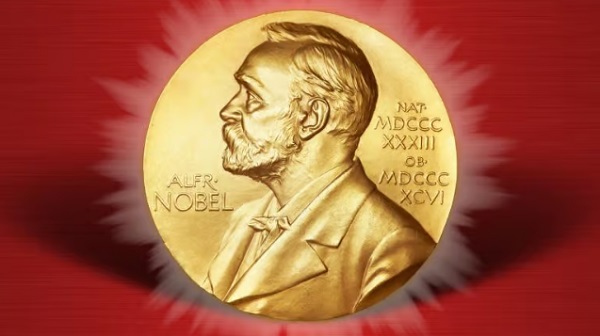
From the Brownstone Institute
By
Many news outlets reported the announcement of the Nobel Peace Prize on Friday by saying President Donald Trump had missed out (Washington Post, Yahoo, Hindustan Times, Huffington Post), not won (USA Today), fallen short (AP News), lost (Time), etc. There is even a meme doing the rounds about ‘Trump Wine.’ ‘Made from sour grapes,’ the label explains, ‘This is a full bodied and bitter vintage guaranteed to leave a nasty taste in your mouth for years.’

For the record, the prize was awarded to María Corina Machado for her courageous and sustained opposition to Venezuela’s ruling regime. Trump called to congratulate her. Given his own attacks on the Venezuelan president, his anger will be partly mollified, and he could even back her with practical support. He nonetheless attacked the prize committee, and the White House assailed it for putting politics before peace.
He could be in serious contention next year. If his Gaza peace plan is implemented and holds until next October, he should get it. That he is unlikely to do so is more a reflection on the award and less on Trump.
So He Won the Nobel Peace Prize. Meh!
Alfred Nobel’s will stipulates the prize should be awarded to the person who has contributed the most to promote ‘fraternity between nations…abolition or reduction of standing armies and…holding and promotion of peace congresses.’ Over the decades, this has expanded progressively to embrace human rights, political dissent, environmentalism, race, gender, and other social justice causes.
On these grounds, I would have thought the Covid resistance should have been a winner. The emphasis has shifted from outcomes and actual work to advocacy. In honouring President Barack Obama in 2009, the Nobel committee embarrassed itself, patronised him, and demeaned the prize. His biggest accomplishment was the choice of his predecessor as president: the prize was a one-finger send-off to President George W. Bush.
There have been other strange laureates, including those prone to wage war (Henry Kissinger, 1973), tainted through association with terrorism (Yasser Arafat, 1994), and contributions to fields beyond peace, such as planting millions of trees. Some laureates were subsequently discovered to have embellished their record, and others proved to be flawed champions of human rights who had won them the treasured accolade.
Conversely, Mahatma Gandhi did not get the prize, not for his contributions to the theory and practice of non-violence, nor for his role in toppling the British Raj as the curtain raiser to worldwide decolonisation. The sad reality is how little practical difference the prize has made to the causes it espoused. They bring baubles and honour to the laureates, but the prize has lost much of its lustre as far as results go.
Trump Was Not a Serious Contender
The nomination processes start in September and nominations close on 31 January. The five-member Norwegian Nobel committee scrutinises the list of candidates and whittles it down between February and October. The prize is announced on or close to 10 October, the date Alfred Nobel died, and the award ceremony is held in Oslo in early December.
The calendar rules out a newly elected president in his first year, with the risible exception of Obama. The period under review was 2024. Trump’s claims to have ended seven wars and boasts of ‘nobody’s ever done that’ are not taken seriously beyond the narrow circle of fervent devotees, sycophantic courtiers, and supplicant foreign leaders eager to ingratiate themselves with over-the-top flattery.
Trump Could Be in Serious Contention Next Year
Trump’s 20-point Gaza peace plan falls into three conceptual-cum-chronological parts: today, tomorrow, and the day after. At the time of writing, in a hinge moment in the two-year war, Israel has implemented a ceasefire in Gaza, Hamas has agreed to release Israeli hostages on 13-14 October, and Israel will release around 2,000 Palestinian prisoners (today’s agenda). So why are the ‘Ceasefire Now!’ mobs not out on the streets celebrating joyously instead of looking morose and discombobulated? Perhaps they’ve been robbed of the meaning of life?
The second part (tomorrow) requires Hamas demilitarisation, surrender, amnesty, no role in Gaza’s future governance, resumption of aid deliveries, Israeli military pullbacks, a temporary international stabilisation force, and a technocratic transitional administration. The third part, the agenda for the day after, calls for the deradicalisation of Gaza, its reconstruction and development, an international Peace Board to oversee implementation of the plan, governance reforms of the Palestinian Authority, and, over the horizon, Palestinian statehood.
There are too many potential pitfalls to rest easy on the prospects for success. Will Hamas commit military and political suicide? How can the call for democracy in Gaza and the West Bank be reconciled with Hamas as the most popular group among Palestinians? Can Israel’s fractious governing coalition survive?
Both Hamas and Israel have a long record of agreeing to demands under pressure but sabotaging their implementation at points of vulnerability. The broad Arab support could weaken as difficulties arise. The presence of the internationally toxic Tony Blair on the Peace Board could derail the project. Hamas has reportedly called on all factions to reject Blair’s involvement. Hamas official Basem Naim, while thanking Trump for his positive role in the peace deal, explained that ‘Palestinians, Arabs and Muslims and maybe a lot [of] people around the world still remember his [Blair’s] role in causing the killing of thousands or millions of innocent civilians in Afghanistan and Iraq.’
It would be a stupendous achievement for all the complicated moving parts to come together in stable equilibrium. What cannot and should not be denied is the breathtaking diplomatic coup already achieved. Only Trump could have pulled this off.
The very traits that are so offputting in one context helped him to get here: narcissism; bullying and impatience; bull in a china shop style of diplomacy; indifference to what others think; dislike of wars and love of real estate development; bottomless faith in his own vision, negotiating skills, and ability to read others; personal relationships with key players in the region; and credibility as both the ultimate guarantor of Israel’s security and preparedness to use force if obstructed. Israelis trust him; Hamas and Iran fear him.
The combined Israeli-US attacks to degrade Iran’s nuclear capability underlined the credibility of threats of force against recalcitrant opponents. Unilateral Israeli strikes on Hamas leaders in Qatar highlighted to uninvolved Arabs the very real dangers of continued escalation amidst the grim Israeli determination to rid themselves of Hamas once and for all.
Trump Is Likely to Be Overlooked
Russia has sometimes been the object of the Nobel Peace Prize. The mischievous President Vladimir Putin has suggested Trump may be too good for the prize. Trump’s disdain for and hostility to international institutions and assaults on the pillars of the liberal international order would have rubbed Norwegians, among the world’s strongest supporters of rules-based international governance, net zero, and foreign aid, the wrong way.
Brash and public lobbying for the prize, like calling the Norwegian prime minister, is counterproductive. The committee is fiercely independent. Nominees are advised against making the nomination public, let alone orchestrating an advocacy campaign. Yet, one laureate is believed to have mobilised his entire government for quiet lobbying behind the scenes, and another to have bad-mouthed a leading rival to friendly journalists.
Most crucially, given that Scandinavian character traits tip towards the opposite end of the scale, it’s hard to see the committee overlooking Trump’s loud flaws, vanity, braggadocio, and lack of grace and humility. Trump supporters discount his character traits and take his policies and results seriously. Haters cannot get over the flaws to seriously evaluate policies and outcomes. No prizes for guessing which group the Nobel committee is likely to belong to. As is currently fashionable to say when cancelling someone, Trump’s values do not align with those of the committee and the ideals of the prize.
Autism
Trump Blows Open Autism Debate
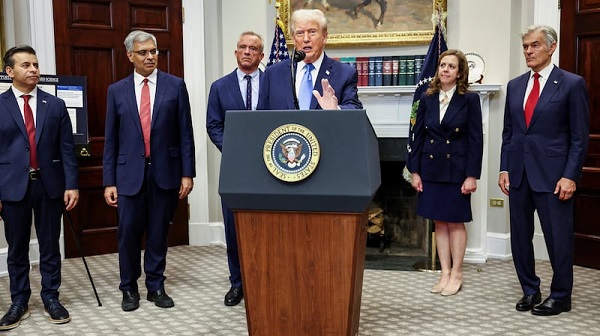
From the Brownstone Institute
By
Trump made sweeping claims that would have ended political careers in any other era. His health officials tried to narrow the edges, but the President ensured that the headlines would be his.
Autism has long been the untouchable subject in American politics. For decades, federal agencies tiptoed around it, steering research toward genetics while carefully avoiding controversial environmental or pharmaceutical questions.
That ended at the White House this week, when President Donald Trump tore through the taboo with a blunt and sometimes incendiary performance that left even his own health chiefs scrambling to keep pace.
Flanked by Health Secretary Robert F. Kennedy, Jr., NIH Director Jay Bhattacharya, FDA Commissioner Marty Makary, CMS Adminstrator Dr Mehmet Oz, and other senior officials, Trump declared autism a “horrible, horrible crisis” and recounted its rise in startling terms.
“Just a few decades ago, one in 10,000 children had autism…now it’s one in 31, but in some areas, it’s much worse than that, if you can believe it, one in 31 and…for boys, it’s one in 12 in California,” Trump said.
The President insisted the trend was “artificially induced,” adding: “You don’t go from one in 20,000 to one in 10,000 and then you go to 12, you know, there’s something artificial. They’re taking something.”
Trump’s Blunt Tylenol Warning
The headline moment came when Trump zeroed in on acetaminophen, the common painkiller sold as Tylenol — known as paracetamol in Australia.
While Kennedy and Makary described a cautious process of label changes and physician advisories, Trump dispensed with nuance.
“Don’t take Tylenol,” Trump said flatly. “Don’t take it unless it’s absolutely necessary…fight like hell not to take it.”
Kennedy laid out the evidence base, citing “clinical and laboratory studies that suggest a potential association between acetaminophen used during pregnancy and adverse neurodevelopmental outcomes, including later diagnosis for ADHD and autism.”
Makary reinforced the point with references to the Boston Birth Cohort, the Nurses’ Health Study, and a recent Harvard review, before adding: “To quote the dean of the Harvard School of Public Health, there is a causal relationship between prenatal acetaminophen use and neurodevelopmental disorders of ADHD and autism spectrum disorder. We cannot wait any longer.”
But where the officials spoke of “lowest effective dose” and “shortest possible duration,” Trump thundered over the top: “I just want to say it like it is, don’t take Tylenol. Don’t take it if you just can’t. I mean, it says, fight like hell not to take it.”
Vaccines Back on Center Stage
The President then pivoted to vaccines, reviving arguments that the medical establishment has long sought to bury. He blasted the practice of giving infants multiple injections at a single visit.
“They pump so much stuff into those beautiful little babies, it’s a disgrace…you get a vat of 80 different vaccines, I guess, 80 different blends, and they pump it in,” Trump said.
His solution was simple: “Go to the doctor four times instead of once, or five times instead of once…it can only help.”
On the measles, mumps, and rubella shot, Trump insisted: “The MMR, I think should be taken separately…when you mix them, there could be a problem. So there’s no downside in taking them separately.”
The moment was astonishing — echoing arguments that had once seen doctors like Andrew Wakefield excommunicated from medical circles.
It was the kind of line of questioning the establishment had spent decades trying to banish from mainstream debate.
Hep B Vaccine under Attack
Trump dismissed the rationale for giving the hepatitis B vaccine at birth.
“Hepatitis B is sexually transmitted. There’s no reason to give a baby that’s just born hepatitis B [vaccine]. So I would say, wait till the baby is 12 years old,” he said.
He made clear that he was “not a doctor,” stressing that he was simply offering his personal opinion. But the move could also be interpreted as Trump choosing to take the heat himself, to shield Kennedy’s HHS from what was sure to be an onslaught of criticism.
The timing was remarkable.
Only last week, the CDC’s Advisory Committee on Immunisation Practices (ACIP) had been preparing to vote on whether to delay the hepatitis B shot until “one month” of age — a modest proposal that mainstream outlets derided as “anti-vax extremism.”
By contrast, Trump told the nation to push the jab back 12 years. His sweeping denunciations made the supposedly radical ACIP vote look almost tame.
The irony was inescapable — the same media voices who had painted Kennedy’s reshaped ACIP as reckless now faced a President willing to say far more than the panel itself dared.
A New Treatment and Big Research Push
The administration also unveiled what it deemed a breakthrough: FDA recognition of prescription leucovorin, a folate-based therapy, as a treatment for some autistic children.
Makary explained: “It may also be due to an autoimmune reaction to a folate receptor on the brain not allowing that important vitamin to get into the brain cells…one study found that with kids with autism and chronic folate deficiency, two-thirds of kids with autism symptoms had improvement and some marked improvement.”
Dr Oz confirmed Medicaid and CHIP (the Children’s Health Insurance Program, which provides low-cost health coverage to children in families that earn too much to qualify for Medicaid) would cover the treatment.
“Over half of American children are covered by Medicaid and CHIP…upon this label change…state Medicaid programs will cover prescription leucovorin around the country, it’s yours,” said Oz.
Bhattacharya announced $50 million in new NIH grants under the “Autism Data Science Initiative.”
He explained that 13 projects would be funded using “exposomics” — the study of how environmental exposures like diet, chemicals, and infections interact with our biology — alongside advanced causal inference methods.
“For too long, it’s been taboo to ask some questions for fear the scientific work might reveal a politically incorrect answer,” Bhattacharya said. “Because of this restricted focus in scientific investigations, the answers for families have been similarly restricted.”
Mothers’ Voices
The press conference also featured raw testimony from parents.
Amanda, mother of a profoundly autistic five-year-old, told Trump: “Unless you’ve lived with profound autism, you have no idea…it’s a very hopeless feeling. It’s very isolating. Being a parent with a profound autistic child, even just taking them over to your friend’s house is something we just don’t do.”
Jackie, mother of 11-year-old Eddie, said: “I’ve been praying for this day for nine years, and I’m so thankful to God for bringing the administration into our lives…I never thought we would have an administration that was courageous enough to look into things that no prior administration had.”
Their stories underscored what Kennedy said at the announcement about “believing women.” Here were mothers speaking directly about their lived reality, demanding that uncomfortable conversations could no longer be avoided.
Clashes with the Press Corps
Reporters pressed Trump on the backlash from medical groups.
Asked about the American College of Obstetricians and Gynecologists (ACOG) declaring acetaminophen safe in pregnancy, Trump shot back, “That’s the establishment. They’re funded by lots of different groups. And you know what? Maybe they’re right. I don’t think they are, because I don’t think the facts bear it out at all.”
When one journalist raised the argument that rising diagnoses reflected better recognition, Kennedy bristled,
“That’s one of the canards that has been promoted by the industry for many years,” he said. “It’s just common sense, because you’re only seeing this in people who are under 50 years of age. If it were better recognition or diagnosis, you’d see it in the seventy-year-old men. I’ve never seen this happening in people my age.”
Another reporter then asked Trump, “Should the establishment media show at least some openness to trying to figure out what the causes are?”
“I wish they would. Yeah, why are they so close-minded?” Trump replied. “It’s not only the media, in all fairness, it’s some people, when you talk about vaccines, it’s crazy…I don’t care about being attacked.”
Breaking the Spell
For years, autism policy has been shaped by caution, consensus, and deference to orthodox positions. That spell was broken at today’s press conference.
The dynamic was striking. Kennedy, Makary, Bhattacharya, and Oz leaned on scientific papers, review processes, and cautious advisories. Trump, by contrast, brushed it all aside, hammering his message home through repetition and personal anecdotes.
Trump made sweeping claims that would have ended political careers in any other era. His health officials tried to narrow the edges, but the President ensured that the headlines would be his.
“This will be as important as any single thing I’ve done,” Trump declared. “We’re going to save a lot of children from a tough life, really tough life. We’re going to save a lot of parents from a tough life.”
Whatever the science ultimately shows, the politics of autism in America will never be the same.
Republished from the author’s Substack
-
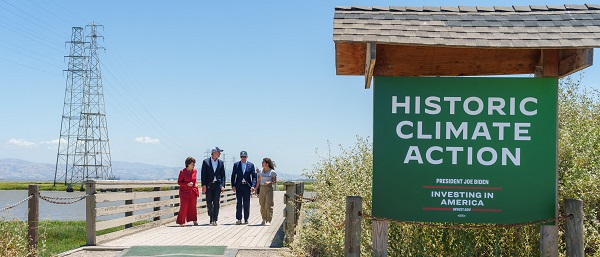
 Daily Caller2 days ago
Daily Caller2 days agoUtah Republican Senator Planning To Attend Big Globalist Climate Shindig Despite Trump’s Energy Policies
-

 International1 day ago
International1 day agoNumber of young people identifying as ‘transgender’ declines sharply: report
-

 Energy1 day ago
Energy1 day agoIndigenous Communities Support Pipelines, Why No One Talks About That
-
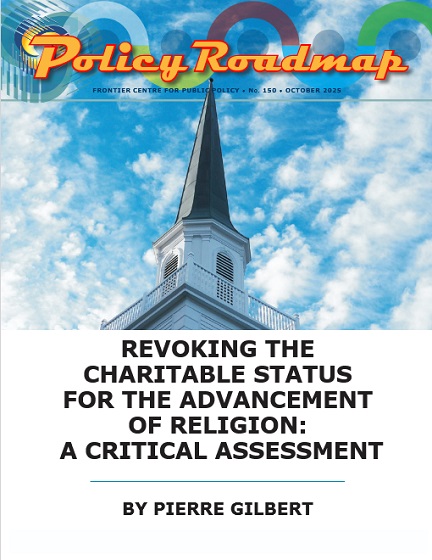
 Business1 day ago
Business1 day agoFinance Committee Recommendation To Revoke Charitable Status For Religion Short Sighted And Destructive
-
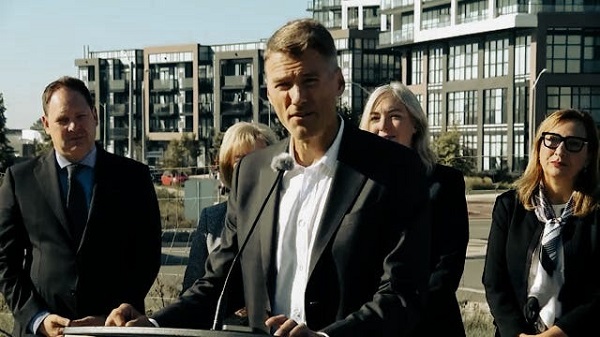
 Business21 hours ago
Business21 hours ago“Nation Building,” Liberal Style: We’re Fixing a Sewer, You’re Welcome, Canada
-

 Bruce Dowbiggin22 hours ago
Bruce Dowbiggin22 hours agoLong-Distance Field Goals Have Flipped The Field. Will The NFL Panic?
-

 Business2 days ago
Business2 days agoFinance Titans May Have Found Trojan Horse For ‘Climate Mandates’
-
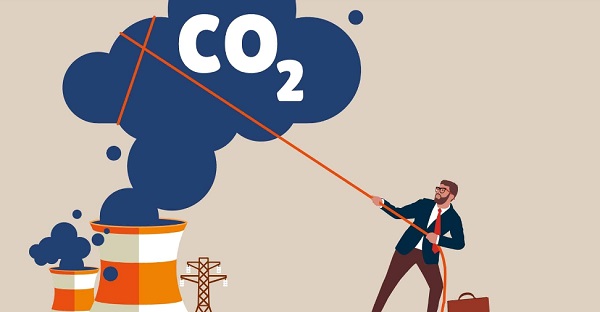
 Alberta23 hours ago
Alberta23 hours agoThe Technical Pitfalls and Political Perils of “Decarbonized” Oil






